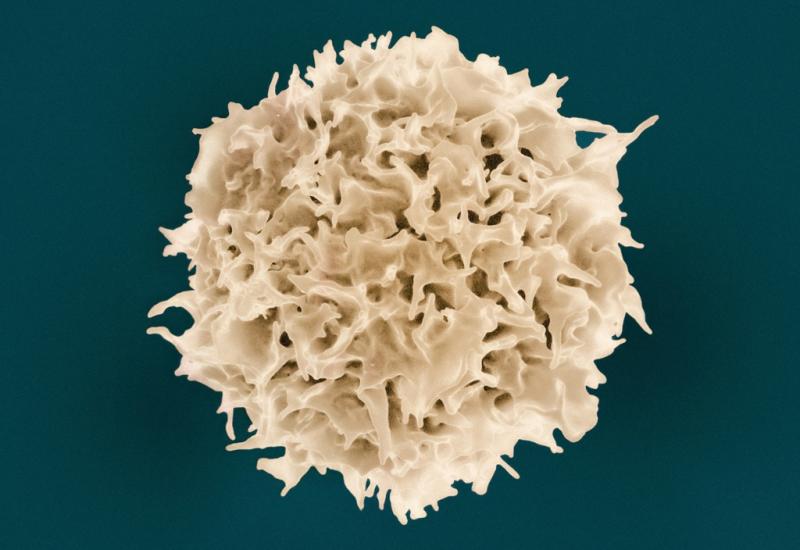
Bristol pulls ahead of Amgen
The company will start a phase 2/3 trial of its Mirati-originated PRMT5 inhibitor in autumn.
The company will start a phase 2/3 trial of its Mirati-originated PRMT5 inhibitor in autumn.

Companies continue to pile into PRMT5 inhibition despite mixed data so far, and now Bristol Myers Squibb has pulled ahead of its rivals. The company is to start a phase 2/3 study of its contender BMS-986504 in first-line MTAP-deleted NSCLC in October, according to a new listing on clinicaltrials.gov.
This shows Bristol overtaking Amgen, which is still nailing down the optimal dose of its project, AMG 193, in phase 2. Still, there are plenty of reasons to be cautious about BMS-986504, which came via Bristol’s 2023 acquisition of Mirati – not least that the group is speeding into a pivotal trial after reporting only phase 1/2 data.
At ASCO, that phase 1/2 study, CA240-0007, found an ORR of 23% among 133 patients with various late-line MTAP-deleted solid tumours, across different doses of BMS-986504 monotherapy.
Zooming in on 33 NSCLC patients gave a more impressive 30% ORR, which crept up to 31% across the go-forward doses of 400mg and 600mg daily.
These numbers look better than an ORR of 12% with active doses of AMG 193 in NSCLC, seen at last year’s ESMO meeting. However, the response rate was 29% if unconfirmed responses were also included, and the usual caveats about cross-trial comparisons apply.
Meanwhile, in its first-quarter earnings release in May Amgen disclosed the discontinuation of a phase 1/2 trial evaluating AMG 193 alongside Ideaya’s MAT2A inhibitor IDE397, although it didn’t give a reason for this.
Plus Keytruda, not Opdivo
As for BMS-986504, the upcoming phase 2/3 MountainTAP-29 study is notable for focusing on first-line NSCLC patients, while other trials have so far enrolled patients with relapsed disease.
It’s also interesting that the study will combine BMS-986504 with chemo and Merck & Co’s Keytruda, rather than Bristol’s own anti-PD-1 MAb, Opdivo. Presumably this is because Keytruda plus chemo is the standard of care for first-line NSCLC; Opdivo plus chemo are approved, but only as part of a Yervoy triplet.
The phase 3 primary endpoint is overall survival, but the study also has a co-primary endpoint of PFS, suggesting that Bristol might hope to seek an earlier accelerated approval – although a company spokesperson declined to comment on this.
Bristol is also about to begin a phase 2 study of BMS-986504 monotherapy in relapsed MTAP-deleted NSCLC.
MTAP deletions, which occur in around 10-15% of all cancers, lead to the accumulation of MTA and the formation of PRMT5-MTA complexes. The current wave of so-called MTA-cooperative PRMT5 inhibitors are designed to bind to and inhibit the PRMT5-MTA complex, thereby leading to tumour cell death.
Still, this synthetic lethality approach has had its ups and downs. As well as the lacklustre results with AMG 193, Tango last year discontinued its then lead project, the brain-penetrant PRMT5 inhibitor TNG908, after this disappointed in glioblastoma.
The group has switched to the non-brain penetrant TNG462, which produced an ORR of 43% in phase 1/2 – but among just seven cholangiocarcinoma patients. More data from that trial are expected this year, and pivotal development could begin in 2026, although Tango still has much to prove.
Bristol hasn't yet disclosed whether BMS-986504 is brain penetrant.
The other big contender here is AstraZeneca, whose AZD3470 could yield phase 1/2 data this year. Overall, 21 PRMT5 inhibitors are in clinical development, according to OncologyPipeline, with earlier-stage contenders including Bayer’s BAY 3713372, licensed from Suzhou Puhe BioPharma; BeOne Medicines’ BGB-58067, which went into phase 1 in October, and the “phase 2 ready” P-500, which the private Pathos AI licensed from Prelude last year.
PRMT5 inhibitors in mid-to-late-stage clinical development
| Project | Company | Key trial(s) | Regimen | Note |
|---|---|---|---|---|
| BMS-986504 | Bristol Myers Squibb (via Mirati) | Ph2/3 MountainTAP-29 in 1st-line NSCLC | + Keytruda + chemo, vs Keytruda + chemo | To start Oct 2025 |
| AMG 193 | Amgen | Ph2 MTapestry 201 in 2nd-line NSCLC | Monotx, uncontrolled | Primary completion Sep 2027; ph1/2 data lacklustre; IDE397 combo trial discontinued Q1 2025 |
| TNG462 | Tango Therapeutics | Ph1/2 in solid tumours | +/- Keytruda (also being tested in combo with Revolution’s RAS inhibitors in separate ph1/2) | Non-brain penetrant; Tango prioritised in Nov 2024 following disappointing results with 1st-gen project TNG908; pivotal trials could begin 2026 |
| AZD3470 | AstraZeneca | Ph1/2 Primrose in solid tumours & Primavera in haem malignancies | Monotx & undisclosed combos | Data due Q4 2025 (Primrose) & 2026 (Primavera) |
| TNG456 | Tango Therapeutics | Ph1/2 in solid tumours | +/- Verzenio, uncontrolled | Brain penetrant; trial completes Mar 2027 |
| CTS3497 | CytosinLab Therapeutics | Ph1/2 China trial in MTAP-deficient solid tumours & lymphomas | Monotx, uncontrolled | Primary completion Dec 2028 |
Note: all trials in MTAP-deleted/deficient patients. Source: OncologyPipeline.
This story has been updated to include comments from Bristol Myers Squibb.
3153













